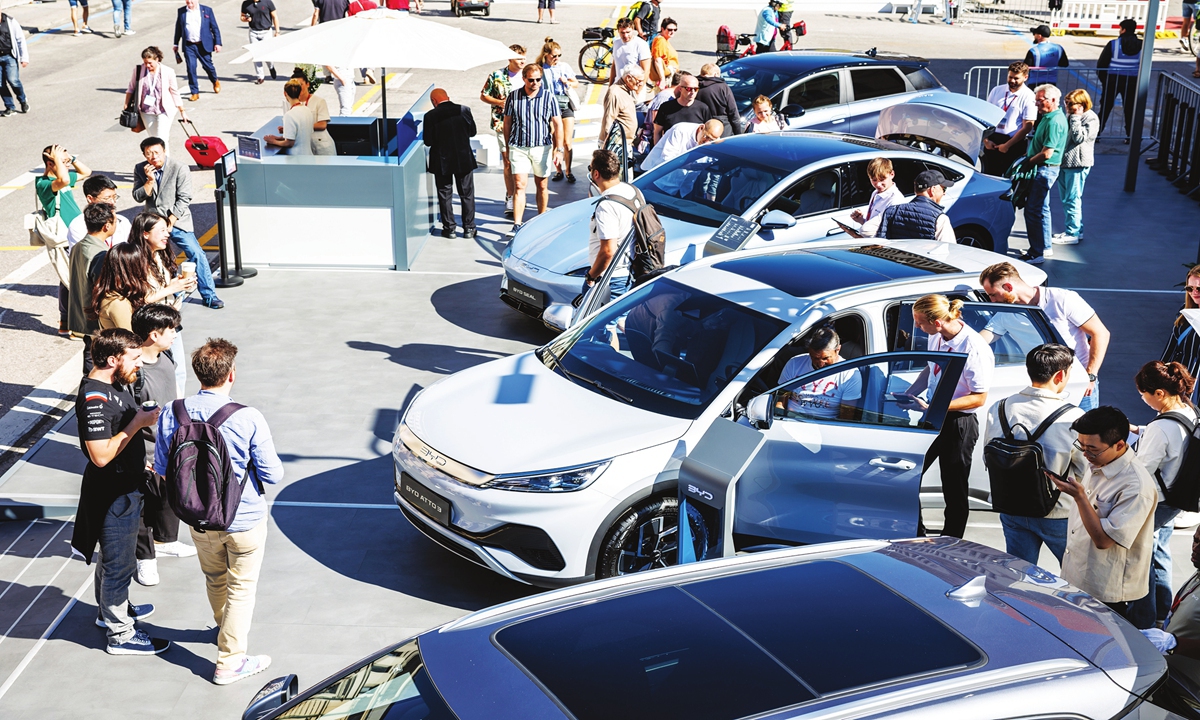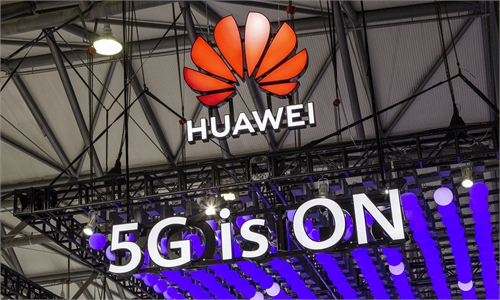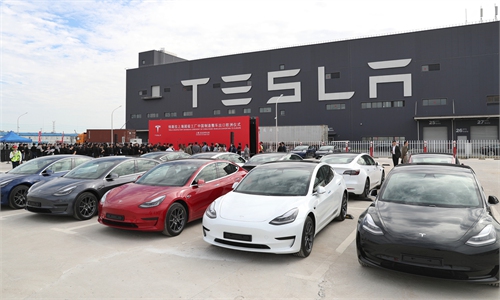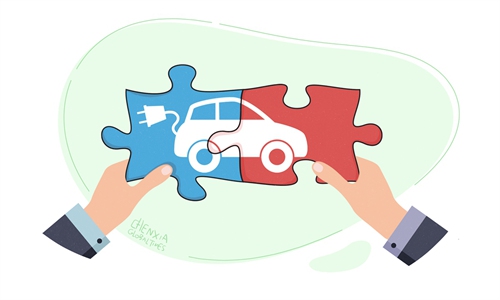
Visitors inspect vehicles at the booth of Chinese manufacturer BYD at the Open Space of the IAA 2023 auto show in Munich, Germany on September 5, 2023. Photo: VCG
An anti-subsidy probe by the EU has raised the biggest ever uncertainties regarding EU-China electric vehicle (EV) industry cooperation. What will happen to healthy competition and industrial cooperation if the EU adopts protectionist measures against Chinese EVs?Even within the EU, the recent announcement of an anti-subsidy probe into Chinese EVs has sparked strong reactions.
While some in the EU believe that such measures could protect European electric carmakers, more are concerned that the probe may lead to a new trade war that will not resolve the competition challenges faced by Europe, but instead risk bigger and potentially uncontrollable consequences.
China's substantial investment in EV capacity has caused concern in the EU, the Financial Times said in a Tuesday article entitled "EU companies warn China on EV overcapacity," citing Jens Eskelund, president of the EU Chamber of Commerce in China.
The warning, which came just days after the EU's announcement of an anti-subsidy probe into Chinese EVs, was clearly no coincidence. It is not hard to see that the "overcapacity" rhetoric is part of the effort to justify the investigation and pave the way for possible trade barriers against Chinese electric cars.
However, the logic is questionable and flawed. While it is true that the EU's imports of Chinese EVs are growing rapidly, it is misleading and distorting to claim that China's rising EV production capacity is actually a case of overcapacity. Nor is the rapid growth in China's EV production a reason for the EU to launch an anti-subsidy investigation.
As the world shifts toward green development amid climate change, the EV sector is seen as a strategic industry for the future, and countries are making great efforts to promote the production and use of EVs. Demand and sales for EVs are on the rise worldwide. In China, sales of new-energy passenger cars reached nearly 5.25 million in 2022, up 79.3 percent year-on-year. In Europe, EV sales surged more than 50 percent in July from a year earlier, driven by rising demand, greater availability of parts, and easing supply chain constraints.
As the global EV industry expands and evolves, the EU's eagerness to use trade barriers to protect its companies actually points to its anxiety over challenges and a lack of confidence in the future competition. But this is not China's fault.
Some critics in the EU claim that Chinese-made electric cars sold in the EU market have an obvious price advantage compared to those produced by local manufacturers, but they never mention that the prices of Chinese cars sold in the EU are about double those sold in China.
So, the price advantage is not the result of government subsidies, but the result of China's efforts to develop large-scale industrial chains.
Opening-up has contributed to progress in China's EV industry. China has maintained an open and welcoming attitude toward EV companies from around the world, including Volkswagen and Tesla. It is the opening-up that has driven the development of the EV market and industrial chain in China.
Moreover, China's EV industry utilizes components such as batteries, motors, controllers and chargers, among others, from European companies, including but not limited to Bosch, Siemens and Alstom. Chinese EV manufacturers have also collaborated with European automakers to drive technology innovation. It can be said that China has provided a favorable development space and business environment for Europe's auto industry. So, why can't the EU reciprocate and offer the same environment for Chinese auto companies?
Engaging in a new trade war is clearly not beneficial for either side, and the EU cannot simply expect China to passively observe its companies endure unfair treatment. Therefore, considering the growing mutual interests of the China-EU industrial chains, it is advisable for the EU to alter its mind-set and encourage the continuous expansion of bilateral cooperation and market exploration in the realm of EV development.



